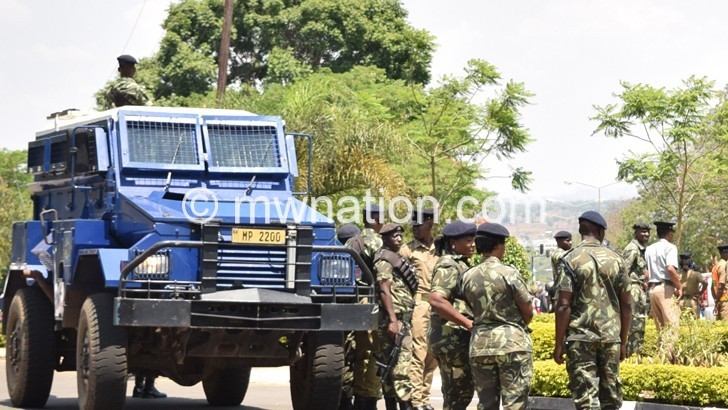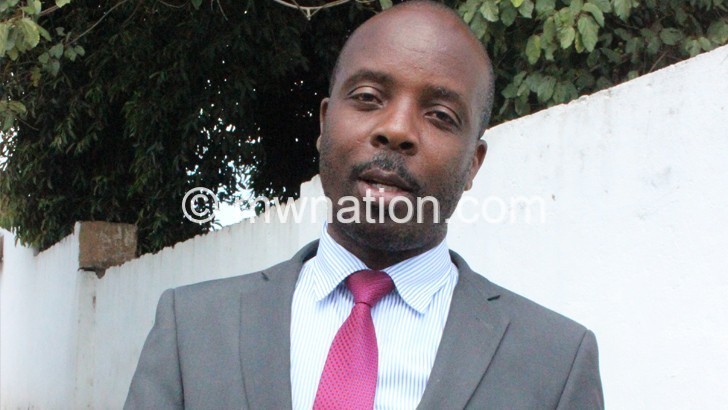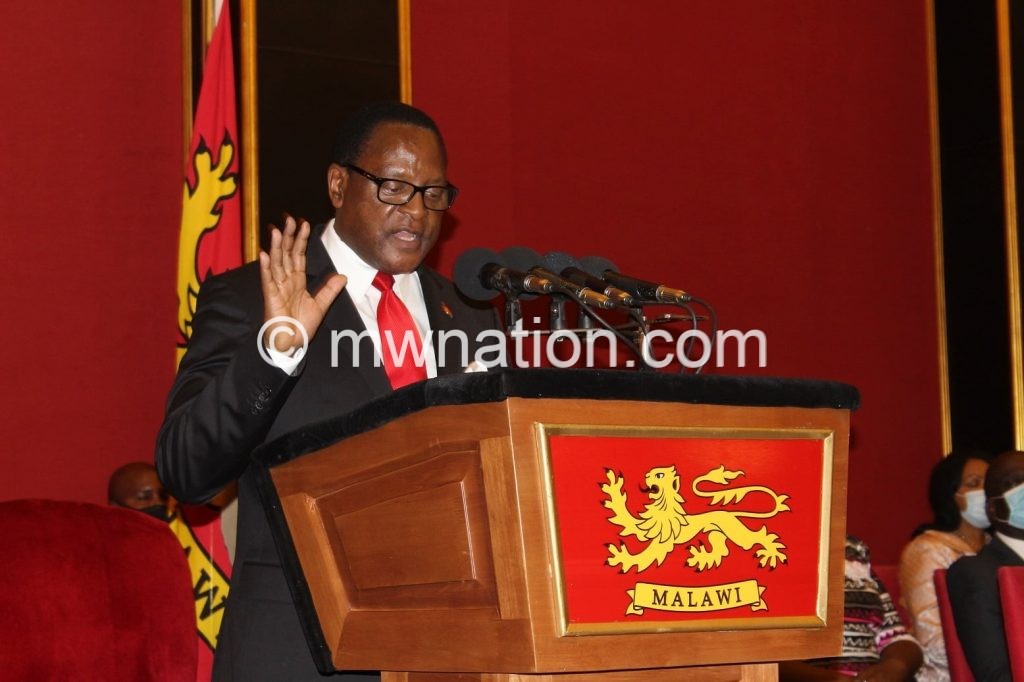Covid-19 rules haunt the poor
In 2017, a vendor moved the Constitutional Court to scrape a colonial law made by Britain in 1924 that empowered police to extort bribes from the poor and exert excess force on people they do not like. Now the adoption of coronavirus prevention rules has created new grounds for repressive policing, with the law enforcers manhandling, overcrowding and arbitrary detaining people found without masks. Our Features Editor JAMES CHAVULA asks Victor Mhango, the executive director of Centre for Human Rights, Education, Advice and Assistance (Chreaa) who supported Mayeso Gwanda’s cause, to unpack the impact of the new dos and don’ts.

What is your take on these beatings and detentions?
We have noted that the police are using excessive force and detention in the enforcement of the guidelines. This is becoming a huge concern for us and this will destroy the gains that the country has achieved on human rights. The beatings are a clear violation of the right to freedom from torture, cruel inhuman and degrading punishment. Even in a case of national disaster or state of emergency, torture is not allowed. The police have no power to beat up anyone. They are required to work within the law and respect human rights. Their conduct is a clear example of gross human rights violation. This takes us back to colonial times where torture was the order of the day. Our Constitution prohibits corporal punishment and it is unconstitutional to beat up any person for any offence.

How are such measures likely to disadvantage the poor who are usually at risk when it comes to such measures as was the case with the rogue and vagabond law repealed by the courts?
We should understand that as much as we have people who are not putting on their masks because they are careless and irresponsible, there are also others who are failing to do so because they cannot afford the mask. This means that we are criminalising poverty in the implementation of the law. The State has a duty to ensure they make an enabling environment to obey the law, by making provision of the masks. The solution lies in dealing with social problems than using penal laws to ensure adherence to the Covid rules.
Desperate times require desperate measures. How can the State and its security agents protect human rights without compromising on the collective fight to stop the coronavirus pandemic?

The State machinery should operate within the law. They should address the social issues that are preventing people to adhere to the Covid-19 rules. Criminalisation of noncompliance is not the best solution where the social challenges remain. The problem of criminalisation is what we are seeing now, the police are abusing their powers and victimising a lot of people as a result. We need to address the problems we have without creating other problems.
As we observe the State of Disaster announced by President Lazarus Chakwera this month, what lessons can we learn from other southern African nations which may be equally or worse hit by the coronavirus emergency?
We have to see that in all countries that they have used the penal laws to enforce the Covid-19 rules, it has not worked. This has resulted in more violation of human rights and the problem still remains. Criminalisation is not a solution in this case.

How can the citizens themselves make the State agencies’ work better and free from rights violations?
I appeal to Malawians to make it difficult if not impossible for the police to come into contact with you by just doing the right thing – put on your mask. Malawians should know that wearing of face masks in all public places is mandatory and those who do not follow may face fines.
A few years back, Chreaa supported vendor Mayeso Gwanda’s public interest case, which led to the repeal of one of the rogue and vagabond laws in our colonial statutes. However, the judges did order the State agencies—Parliament, Law Commission and Human Rights Commission—to review the remaining vagrancy laws. Have the State agencies done enough to make good of the law reform championed by a vendor while they were dozing on the job?
No, the State has not done anything to review the laws as ordered by the court. We are still seeing police officers using the offence of idle and disorderly to victimise people. A good example is the case of the Polytechnic student who was raped in police custody when she was arrested for such offences. However, we are encouraged by recommendation of the African Court on Human and People’s Rights that concurred with our Constitutional Court to review laws that are deemed to be selective. The court stated that there is no reasonable basis for a law that distinguishes between so-called ‘vagrants’ and the rest of the population based on their economic status
From your interaction, what does Gwanda himself say about the State inertia to build on his law-changing court victory?
Mayeso still believes that poverty is not a crime and has faith in the Judiciary.
What does the future look like if we continue neglecting the colonial repressive laws in our laws?
The Bill of Human Rights enshrined in our Constitution will remain a piece of paper for many Malawians if we do not deal away with laws that violate rights of the most vulnerable people in our society. We also cannot be creating new laws that evidently target the poor and violate human rights. We make joke of our constitutional democracy if the State can pass laws that only violate human rights.





